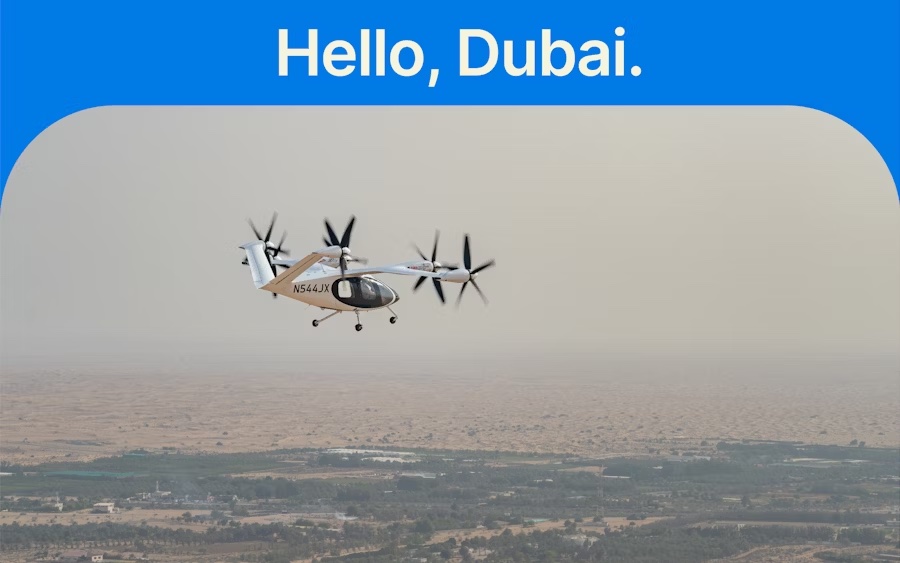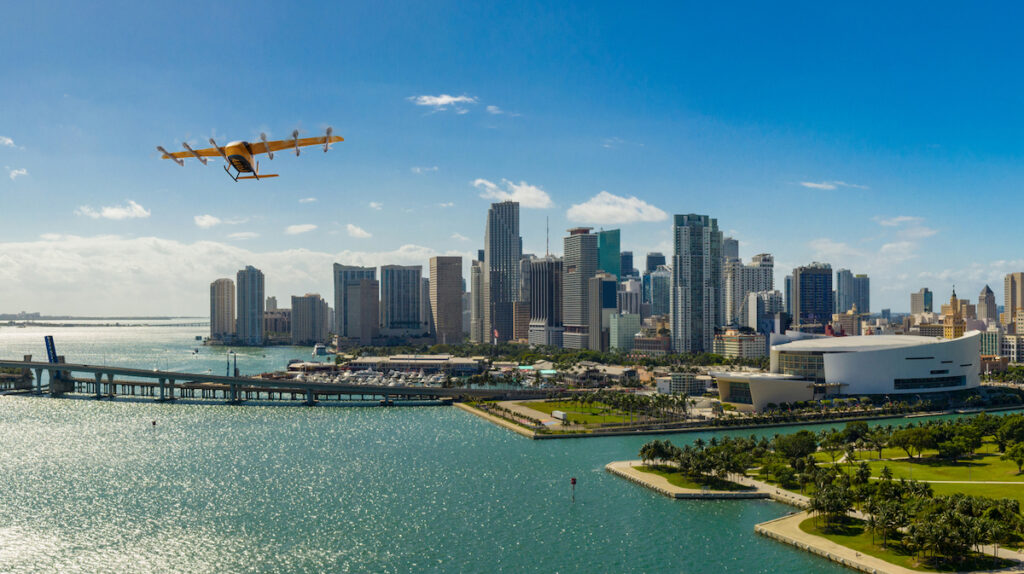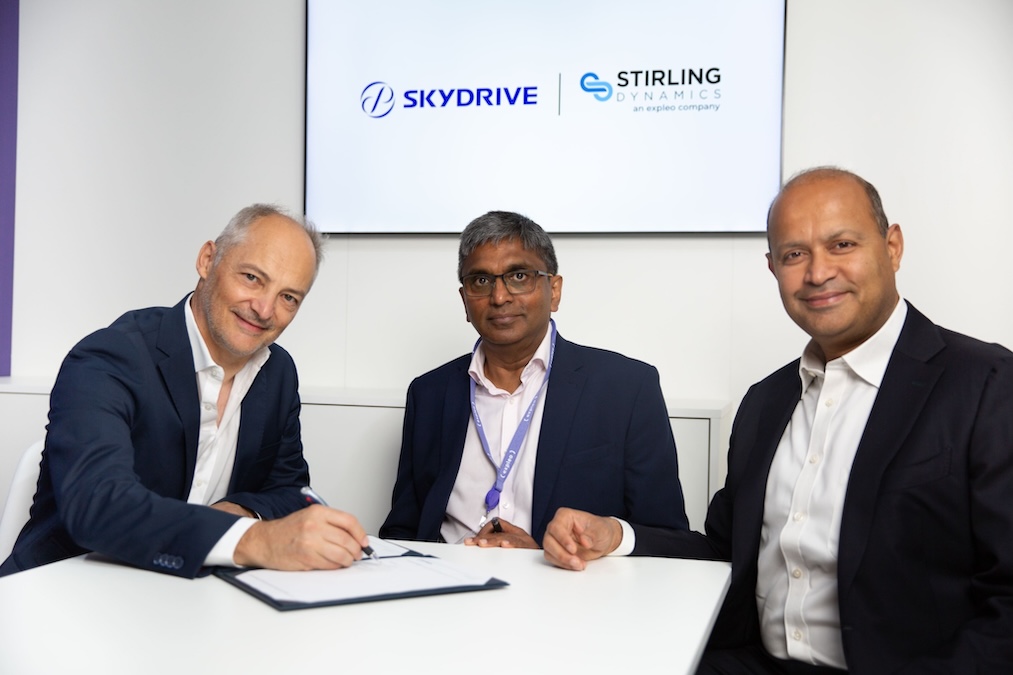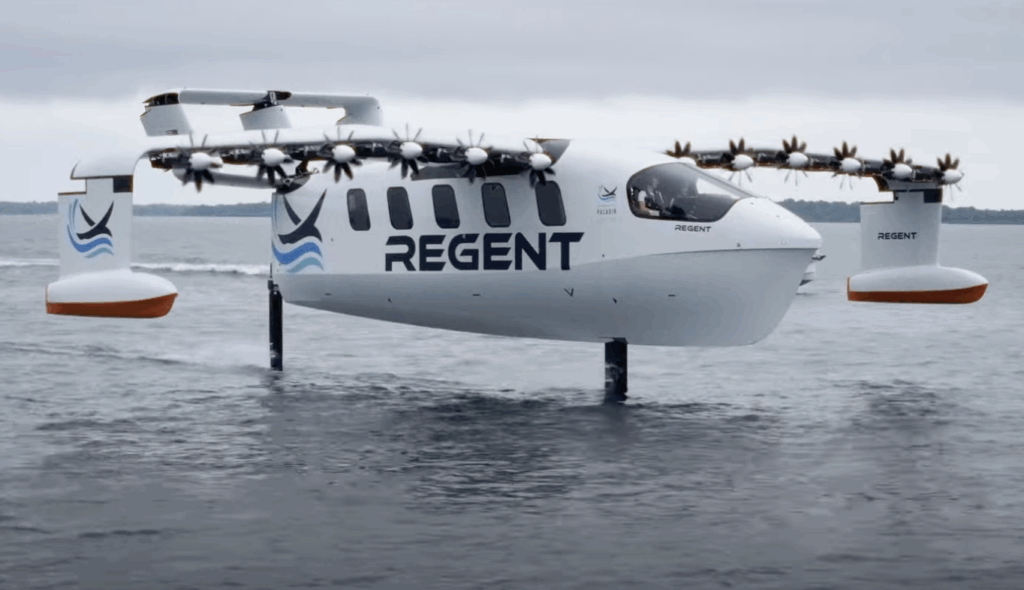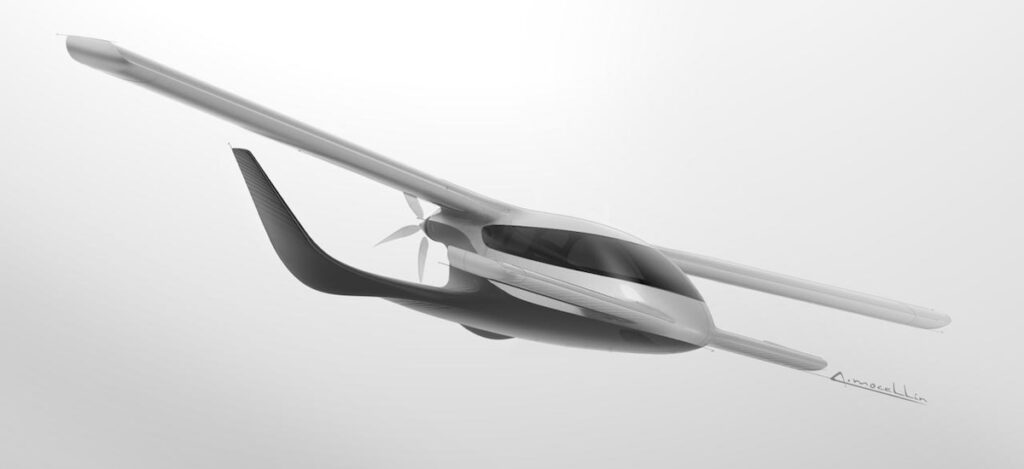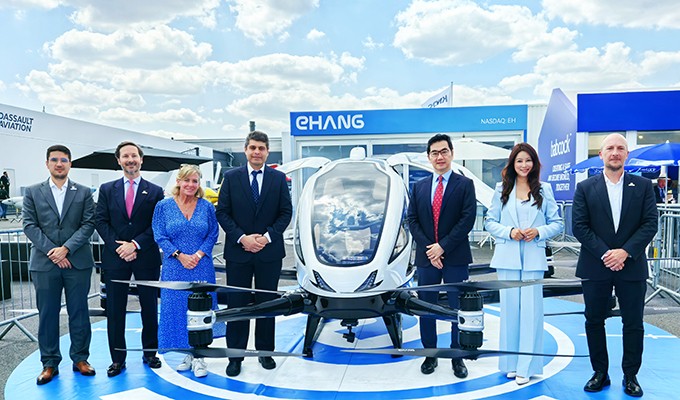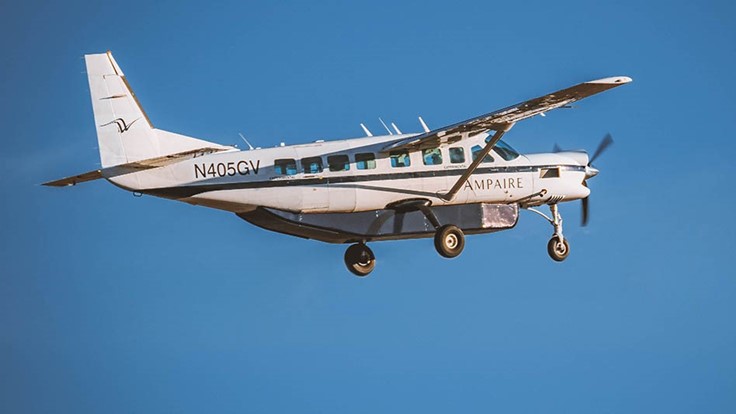
Ampaire’s Eco Caravan, a nine-seat regional aircraft, has made its first flight on a fully integrated hybrid-electric propulsion system.
According to Ampaire, it will be the first electrified regional aircraft to enter commercial service and the first in a series of larger hybrid-electric aircraft that will lead a transition to sustainable aviation.
“Aviation is the hardest industry to decarbonize,” said Ampaire CEO Kevin Noertker. “Fully-electric aircraft are range limited because of the weight and energy capacity of current-generation batteries. Hybrid-electric aircraft, however, can preserve the range and
utility of today’s aircraft. That is why we are focused on hybrid-electric propulsion for a
series of increasingly capable regional aircraft. It’s a way for the airline industry to
decarbonize more quickly and also to benefit from lower operating costs.”
The Eco Caravan upgrades the standard Cessna Grand Caravan with Ampaire’s integrated
propulsion system of a compression ignition engine and an electric engine. A battery pack
in a body fairing preserves passenger and cargo capacity for the aircraft.
The first flight was 33 minutes in duration to make initial checks of the propulsion system. Test pilot Elliott Seguin took off from Camarillo Airport north of Los Angeles at 7:49AM pacific time. It climbed to 3,500 feet at full power, combining power from the combustion engine and electric engine. Seguin spent roughly 20 minutes testing various power settings while studying temperatures and other readings before making a descent and final approach to Camarillo at a low power setting. “The Eco Caravan propulsion system performed just as expected,” said Seguin. “It was smooth and quiet. All temperature and power output readings were normal.”
According to Ampaire, the Eco Caravan reduces fuel consumption and emissions by up to 70 percent. It can fly further than the Grand Caravan with eight passengers. The Eco Caravan’s range and load hauling capability is in marked contrast to proposed all-electric, hydrogen-electric and even other hybrid-electric designs.
The Eco Caravan can also recharge its batteries in flight or at a charging station on the
ground. Because charging infrastructure will be limited for some years, the ability to
operate independent of ground charging is critical for preserving the full utility of the Eco
Caravan.
The Eco Caravan’s propulsion technology is scalable to larger regional aircraft and
ultimately to single-aisle airliners. Ampaire plans to rapidly roll out more powerful
propulsion systems for larger aircraft, following a building blocks approach that will
dramatically improve the sustainability of airline operations.
“As proud as we are of the Eco Caravan, we see it as a first step to larger hybrid-electric
propulsions systems and ultimately zero-emission systems as energy storage technology
advances,” Noertker added.
Ampaire is already working with the FAA to certify the Eco Caravan in 2024 under a supplemental type certificate, an STC. The Ampaire approach differs from others in that it does not require a full aircraft certification program, which can be time consuming and very expensive. The Grand Caravan is already FAA certified. Ampaire will certify it to fly with a new propulsion system.
“Launching hybrid-electric aviation is no simple task, but we have made it easier by upgrading an already certified aircraft,” said Noertker. “We will come to market more quickly and allow airlines around the world to begin to gain operational experience with this new type of propulsion. And we will work with them on follow-on models to meet their network requirements.”



